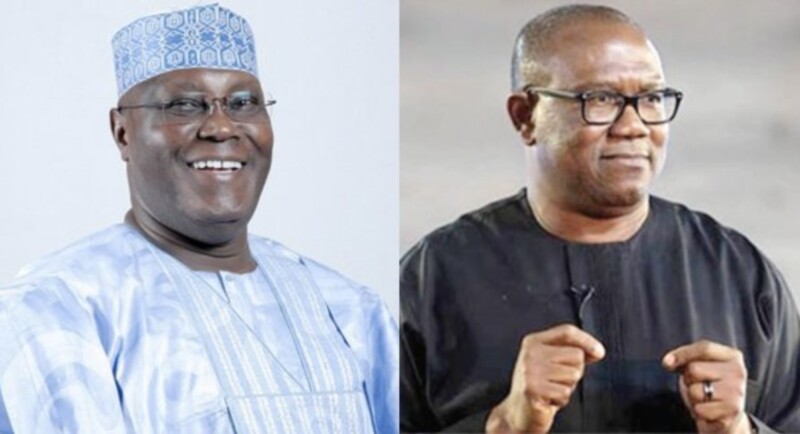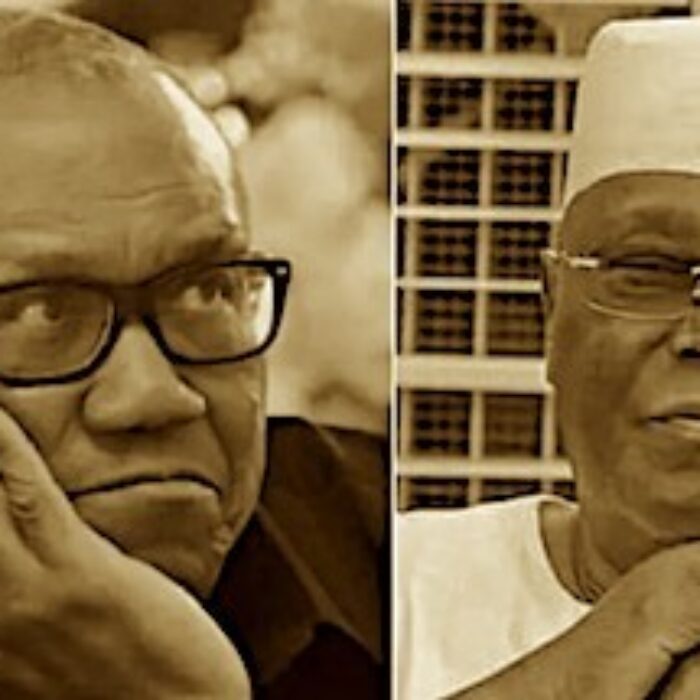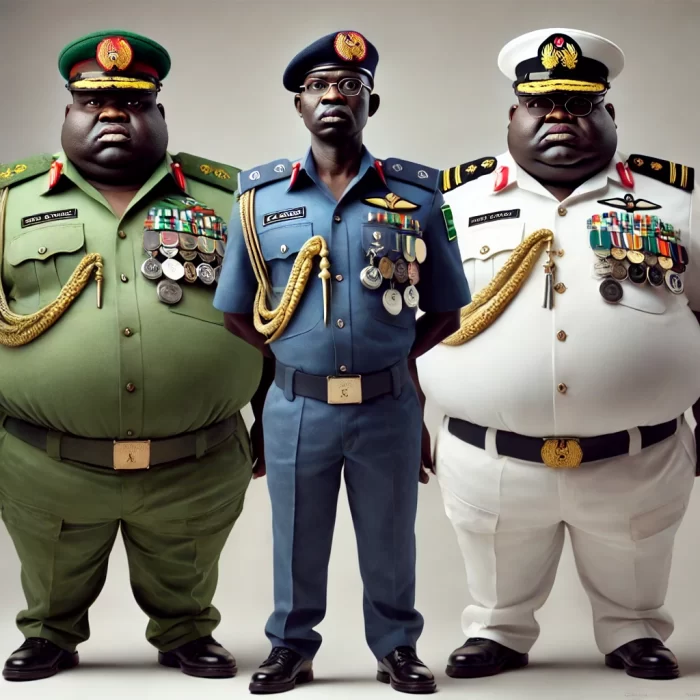By The Editorial Board
In order to combat the stranglehold of the ruling All Progressives Congress (APC) and address the prevailing issues of corruption, electoral malpractices, economic devastation, national insecurity and widespread suffering among the populace, it is of utmost strategic importance for the Labour Party (LP) and Peoples Democratic Party (PDP) to unite through a merger of equals. This union would give rise to a new political powerhouse, named the Peoples Labour Party (PLP).
In this article, we will delve into the necessity of this merger and its potential to reshape Nigeria’s political landscape.
Under the existing dominance of the APC, Nigeria risks sliding into a de facto one-party state, effectively preventing better opposition parties from ever attaining the presidency or gaining significant representation in the National Assembly. This one-party dominant system, controlled by the hegemonic APC, poses a severe threat to the stability and unity of Nigeria, promoting an anti-democratic and authoritarian environment.
An analysis of the LP and PDP reveals that their combined political power, electoral reach, geographic scope, and election success would surpass the sum of their individual parts as standalone parties. If the LP and PDP had operated as a single entity in the 2023 presidential elections, the outcome could have been markedly different.
It is entirely plausible to suggest that the merged LP and PDP could have achieved a resounding victory, securing more than 54% of all vote (13 million out of 24 million votes cast) and attaining at least 25% representation in all 36 states and the Federal Capital Territory, according to INEC published results. With their consolidated presence in the Senate and the House of Representatives, the merged party would have been optimally positioned for effective governance.
As separate entities, both the LP and PDP lack the organizational capacity, scale, reach, and resources required to overcome the incumbent APC president in the upcoming presidential election in 2027. However, through a merger, the new party would become a formidable force with the capability and capacity to challenge and dismantle the APC’s dominance in 2027 and beyond.
Shared Values and Common Goals:
Recognizing the similarities between the LP and PDP in terms of vision, political ideology, party culture, primary goals, policy positions, and electoral advantages in their respective constituencies, it becomes evident that these parties are ideal partners for a merger. By forging this alliance, they can form a potent political force capable of dethroning the APC in future elections.
A merged LP and PDP would effectively unite disparate constituencies, bridging gaps between the youth and the elderly, professionals and farmers, Muslims and Christians, as well as the educated and non-educated. This broad coalition of winners would create a compelling force that resonates with various segments of society.
Furthermore, the merged party would enjoy a geographical coverage advantage in the North, North Central, South East, South-South, and the Federal Capital Territory. This advantage is supported by the outcome of the 2023 presidential election, wherein, the combined LP and PDP presidential candidates secured a significant plurality, capturing more than 54% of votes cast and meeting the 25% threshold in all 36 states, including the Federal Capital Territory. Tinubu won only 36.6% of total votes, failing to win the popular vote, and the lowest of any elected president since 1999.
Although the merger may not perfectly align with the personal ambitions of the party leaders, Messrs. Peter Obi and Atiku Abubakar, it is imperative not to let self-interest and personal political ambition impede national interest and progress, especially in the face of the APC’s disastrous dominance.
The APC has skillfully manipulated key institutions such as the Independent National Electoral Commission (INEC) and the judiciary to secure its hold on power, while utilizing substantial financial resources to influence voters and election outcomes. It will take a combined force to uncoil APC’s python squeeze on the nation’s body politic.
In fact, the urgency of a merger between the LP and PDP into the PLP cannot be overstated. The current winner-takes-all political system, which lacks proportional representation, is more conducive to a two-party structure rather than three, particularly when considering the super-dominant status of the APC.
It is evident from the 2023 elections results that the LP and PDP inadvertently undermined each other’s chances, aiding the victory of the APC’s candidate, Tinubu (pending legal challenges). The two parties ended up cannibalizing their own support base, leading to a fractured opposition.
Political analysts cast doubt on the ability of the LP or PDP to succeed independently in future presidential elections, as their supporters may eventually grow weary of continuous losses and migrate to a stronger alternative, most likely the APC. As such, the future of the PDP and LP as standalone parties appears uncertain and bleak.
Given this scenario, it is imperative, for the sake of our democracy, for Messrs. Peter Obi and Atiku Abubakar to rekindle their personal friendship and political alliance from their time together in the PDP, when Obi served as Atiku’s running mate. To safeguard their parties from irrelevance, the 2023 elections have clearly demonstrated the necessity of a merger for both leaders to maintain a viable political presence. As the saying goes, political necessity often brings together unlikely allies.
Failing to merge will only perpetuate the APC’s grip on power, while the LP and PDP continue to weaken each other in electoral battles. Without a merger, neither Obi nor Atiku can realistically aspire to the presidency, and their respective parties will struggle to gain control of the Senate or the House of Representatives. Both parties would remain marginalized and ineffective under the dominance of the APC. Only through a merger can they amass the critical mass and competitive strength necessary to remove the APC from government.
Messrs. Peter Obi and Atiku Abubakar must recognize that their personal differences should not impede them from serving the greater interests of the nation and the 13 million voters (54% of the 24 million votes cast) who, in 2023, supported their individual efforts to oust the corrupt APC from power. Failing to finalize a merger of equals would place them on the wrong side of history, as they would be held accountable for perpetuating a divided opposition and allowing the APC to continue its detrimental governance.



